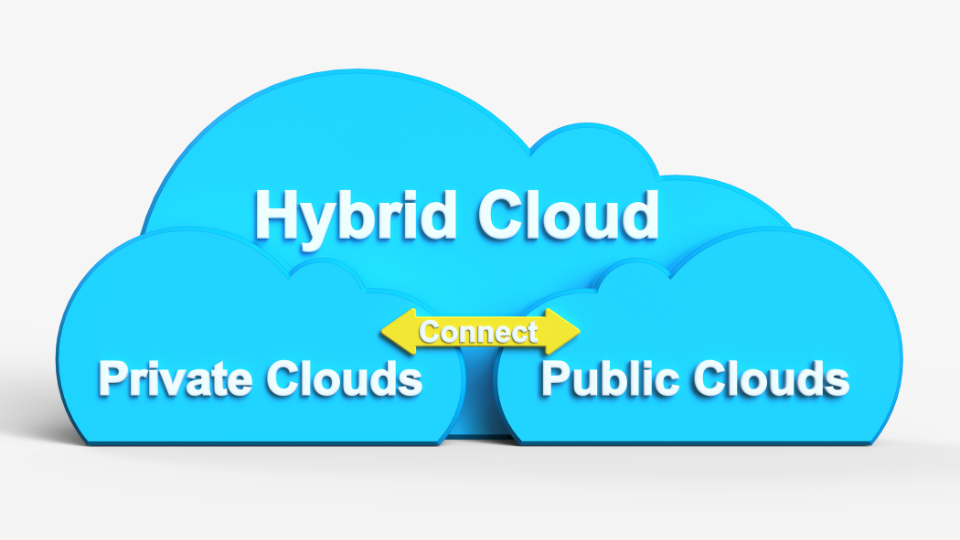Hybrid Cloud Computing: What it is and Why it Matters
Hybrid cloud computing is a modern approach that combines the benefits of both private and public cloud computing. It allows organizations to leverage the advantages of both cloud models while addressing their specific business needs. In this article, we will explore what hybrid cloud computing is, its benefits, and why it matters.
What is Hybrid Cloud Computing?Hybrid cloud computing is a cloud computing model that combines the features of private and public cloud models. It can be defined as the integration of at least one private cloud and one public cloud, which can be either a software-as-a-service (SaaS), infrastructure-as-a-service (IaaS), or platform-as-a-service (PaaS) cloud delivery model.
The private cloud is usually located on-premises or in a data center, and it is managed by the organization’s IT department. It provides the organization with complete control over the infrastructure, data, and applications. On the other hand, the public cloud is owned and managed by a third-party provider. It offers scalability, flexibility, and cost-effectiveness.
Hybrid cloud computing allows organizations to choose where to host their applications and data based on their specific requirements. They can keep sensitive data in the private cloud while leveraging the public cloud for non-sensitive data or applications. This approach provides organizations with the best of both worlds, enabling them to leverage the benefits of the public cloud while maintaining complete control over their data.
Benefits of Hybrid Cloud ComputingHybrid cloud computing provides many benefits to organizations, including:
Scalability: Hybrid cloud computing provides organizations with the ability to scale their applications and data as per their business needs. They can leverage the public cloud for peak loads and the private cloud for regular workloads.
Cost-effectiveness: Hybrid cloud computing allows organizations to reduce their infrastructure costs by leveraging the public cloud for non-sensitive data or applications.
Security: Hybrid cloud computing provides organizations with complete control over their sensitive data by keeping it in the private cloud while leveraging the public cloud for non-sensitive data or applications.
Flexibility: Hybrid cloud computing allows organizations to choose where to host their applications and data based on their specific requirements. They can keep sensitive data in the private cloud while leveraging the public cloud for non-sensitive data or applications.
Why Hybrid Cloud Computing MattersHybrid cloud computing matters because it provides organizations with the flexibility to choose where to host their applications and data based on their specific requirements. It allows them to leverage the benefits of both private and public cloud models while addressing their specific business needs. This approach provides organizations with scalability, cost-effectiveness, security, and flexibility.
In today’s world, where data is the new oil, and businesses are struggling to keep up with the digital transformation, hybrid cloud computing provides organizations with a competitive edge. It enables them to scale their applications and data as per their business needs, reduce infrastructure costs, and maintain complete control over their sensitive data.
Conclusion: Hybrid cloud computing is a modern approach that combines the benefits of both private and public cloud models. It provides organizations with the flexibility to choose where to host their applications and data based on their specific requirements. Hybrid cloud computing provides organizations with scalability, cost-effectiveness, security, and flexibility. In today’s world, where data is the new oil, and businesses are struggling to keep up with the digital transformation, hybrid cloud computing provides organizations with a competitive edge.
Asif Nusrat – Asif@AsifNusrat.com

